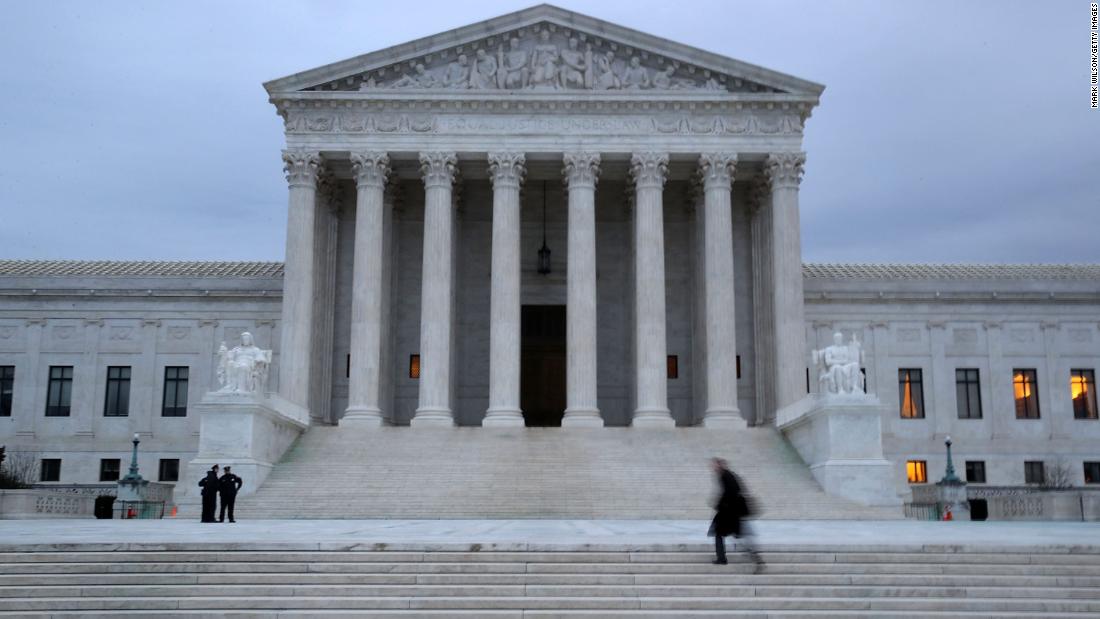[ad_1]
Talks in Vienna resumed last week after a hiatus of more than five months and were the first in which Iran’s new hard-line government participated.
European and American negotiators have expressed disappointment with Iran’s positions and questioned whether the talks will be successful.
Israel has long opposed the 2015 nuclear deal with Iran, known as the JCPOA, saying it did not go far enough to stop the country’s nuclear program and does not address what ‘he considers hostile Iranian military activity in the region.
Important voices in Israel now indicate that the US withdrawal, especially without a contingency plan for Iran’s continuously developing nuclear plan, was a blunder. But Israel’s new government has maintained a position similar to that of former Prime Minister Benjamin Netanyahu – rejecting a return to the original deal and calling for diplomacy to be accompanied by military pressure on Iran.
“I call on all countries negotiating with Iran in Vienna to take a firm stand and make Iran understand that they cannot enrich uranium and negotiate at the same time,” Bennett told his Sunday cabinet. “Iran must start paying the price for its violations. “
After the deal failed, Iran stepped up its nuclear activities. Iran is now enriching small amounts of uranium with purity of up to 60%, a small step from military grade levels of 90%. Iran is also making advanced centrifuges banned by the deal, and its stockpile of uranium now far exceeds the deal’s limits.
So far, Iran shows no signs of backing down. Its chief negotiator, Deputy Foreign Minister Ali Bagheri Kani, suggested this weekend that Iran consider handing over a third list of demands to its counterparts. These would include repairs proposed after two pages of requests last week.
“Any sanction in violation and not in accordance with (the agreement) must be removed immediately,” Bagheri Kani told Al-Jazeera. “Any sanctions that have been imposed or reimposed as part of the so-called maximum pressure campaign by the United States should be removed immediately. “
While the new radical Iranian president Ebrahim Raisi has campaigned for the lifting of sanctions, there is a feeling that his negotiators are now waging their own campaign of maximum pressure.
Last week, the UN nuclear watchdog confirmed that Iran had started enriching uranium to up to 20% purity at its Fordo underground facility – a site where the agreement prohibited from proceed with any enrichment.
And over the weekend, Iran said it tested a surface-to-air missile defense system near its Natanz nuclear facility. Late on Saturday, people leaving nearby saw a light in the sky and heard a loud explosion.
“Any threat from the enemy will receive a decisive and firm response,” state television said, quoting Lt. Cmdr. Ali Moazeni as saying.
President Joe Biden has said America is ready to re-enter the deal, although the United States is not directly participating in the latest round of talks due to Washington’s withdrawal. Instead, US negotiators were nearby and briefed by the other participants, including three European powers, China and Russia.
Although Israel is not a party to the negotiations, it has been keen to maintain lines of communication with its American and European allies during the talks, which are expected to resume this week.
Israeli spy chief David Barnea visited Washington on Saturday evening for an unannounced trip and Defense Secretary Benny Gantz is leaving on Wednesday for meetings with his US counterpart Lloyd Austin and Secretary of State Antony Blinken. Foreign Minister Yair Lapid was in London and Paris last week to discuss talks with Israel’s European allies.
Bennett said Israel was using the time between rounds to convince Americans to “use a different toolbox” against Iran’s nuclear program, without giving details. Israel and the United States are widely believed to have carried out covert operations against Iranian nuclear personnel and infrastructure in an attempt to sabotage the program.
The current Israeli government opposes a return to the 2015 agreement, instead calling for an agreement that addresses other Iranian military behavior, such as its missile program and support for militant anti-Israel groups like Hezbollah Lebanese. Israel also supports a “credible” military threat against Iran as leverage.
A senior State Department official said negotiators expected Iran to “get serious” in the talks. He said even Russia and China, important trade outlets for Iran that have traditionally taken a softer line in their dealings with the country, left the talks last week concerned about the prospect of a deal. .
“Each day that passes is a day as we move closer to the conclusion that they don’t have a return to the JCPOA in mind in a short period of time,” said the official, who requested anonymity to inform them. journalists on the United States. Evaluation. He said Iran could use the talks as a cover to further develop the nuclear program, which it could then use as leverage.
European negotiators have also expressed frustration with the Iranians. Senior German, British and French diplomats said Iran had “stepped up its nuclear program” and “backed down on diplomatic progress.”
“It is not known how these new gaps can be filled in a realistic timeframe on the basis of Iranian plans,” they said.
Iran maintains that its atomic program is peaceful. However, US intelligence agencies and international inspectors say Iran had an organized nuclear weapons program until 2003. Non-proliferation experts fear that any attempt to approach Iran will push Iran. towards even more extreme measures to try to force the West to lift the sanctions.
[ad_2]
Source Link






